Please find all invited Keynote Speaker here in alphabetical order.
Prof. Akihiko Chiba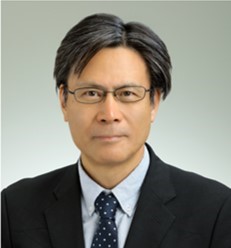
“Additive Manufacturing of High-Entropy Alloys with Electron Beam Melting”
Chiba Laboratory
Deformation Processing, Institute for Materials Research
Tohoku University, Sendai, Japan
Prof. Chiba obtained his Ph.D. in Engineering Materials from Tohoku University, Japan, in 1994. Responsible Professor, Department of Material Processing and Assessment research, Tohoku University. Professor, Institute for Materials Research, Tohoku University.
Professor Chiba conducted studies on Metallic Materials Science and Materials Processing, to develop new materials and new processing technologies by macroscopic, microscopic, or atomic-scale microstructure based on material processing and heat treatment methods. He developed novel biomedical metallic materials based on Co-Cr-Mo alloys, COBARIONⓇ. He proposed the intelligent forging concept to determine the optimum processing condition through quantitative evaluation of microstructure evolution based on material science. In recent years, E-beam additive manufacturing is introduced and integrated existing material processing technology into developing new-type and high-energy material. He made innovative outcomes in respect to metal materials, thermo-mechanical processing, and electron beam melting, etc..
Prof. Bianca Maria Colosimo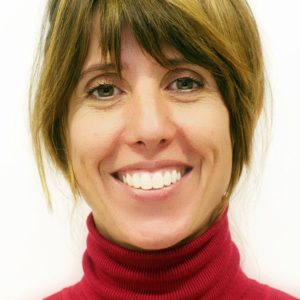
“Zero-waste Additive Manufacturing via big data mining, modeling and monitoring: opportunities and challenges”
AddMe Lab – Additive Manufacturing for MEtal materials
Department of Mechanical Engineering
Politecnico di Milano, Italy
Bianca Maria Colosimo is Full Professor in the Department of Mechanical Engineering of Politecnico di Milano, where she is Deputy-Head of the Department. Politecnico di Milano is the first Engineering school in Italy, ranked among the top 20 universities worldwide in Engineering and Technology (QS world Ranking by subject- 2022). Her research interest is mainly in the area of advanced manufacturing, with special attention to additive manufacturing data modeling, monitoring and control.
Since 2021, she is Associate Editor of Progress in Additive Manufacturing, Senior Editor of the Informs Journal of Data Science, Department Editor of IISE Transactions, member of the Editorial Board of Additive Manufacturing Letters. She served as Editor-in-Chief of Journal of Quality Technology from 2019 to 2021.
She is co-leading the research laboratory AddMe Lab, one of the leading lab on Additive Manufacturing in Europe, equipped with all the relevant technologies for metal additive manufacturing. She has recently funded a new laboratory named 3D Cell lab for 3D bioprinting of living tissues.
She is member of the platform Manufuture of the European Commission, member of the Steering Committee of the EU Vanguard initiative on 3D printing and member of the Board of Directors of EIT manufacturing (CLC south).
She is included among the top 100 Italian woman scientists in STEM.
Prof. Norbert Enzinger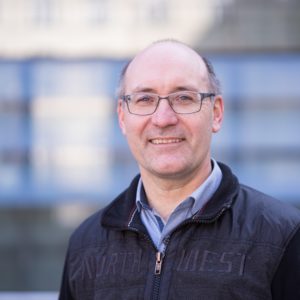
“Wire-based additive manufacturing using electron beam to process advanced materials”
Joining Technology Group
Institute of Materials Science, Joining and Forming
Graz University of Technology, Austria
Norbert Enzinger heads the Joining Technology Group at the Institute of Materials Science, Joining and Forming at Graz University of Technology. After studying mechanical engineering, he worked on the numerical simulation of welding, damage analysis and the investigation and further development of various welding processes and wire-based additive manufacturing. He has contributed to over 100 peer-reviewed publications and is one of the editors of the book series “Mathematical Modelling of Weld Phenomena”.
Dr. Christian Haase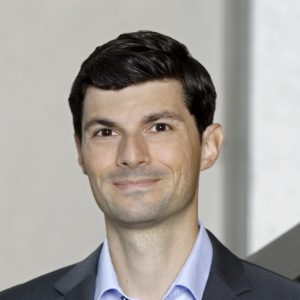
“Design of alloys for additive manufacturing by efficient combination of experiments, simulation and machine learning”
Steel Institute
RWTH Aachen University, Germany
Christian Haase obtained his PhD in physical metallurgy and metal physics at RWTH Aachen University in 2015. Since 2016, he is head of the research group Integrated Computational Materials Engineering at the Steel Institute of RWTH. Dr. Haase is an active member of several regional and international additive manufacturing research initiatives as well as head of an independent research group focusing on alloy development for additive manufacturing of automotive applications.
His research groups work on the efficient integration of experimental and computational approaches to understand and design processes and alloys for high-performance applications. During the last years, understanding the mechanisms that govern the microstructure evolution during additive manufacturing as well as the influence on the resulting plastic deformation behaviour became one of their core research topics. These include development of novel high-strength steels tailored for laser-powder bed fusion, crack-resistant nickel-base and aluminium alloys, as well as high-entropy and ODS alloys for high-temperature applications. Recent activities focus on high-throughput alloy design approaches for additive manufacturing based on a holistic design framework combining high-throughput experimental and computational approaches, detailed materials simulations and machine learning.
Prof. Paria Karimi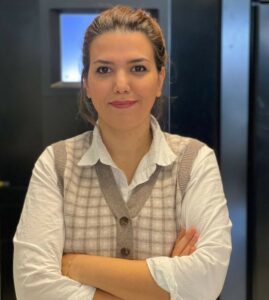
“Towards Microstructure Engineering via Electron Beam-Powder Bed Fusion”
Assistant Professor, Multi-Scale Additive Manufacturing (MSAM) Lab
Department of Mechanical and Mechatronics Engineering
University of Waterloo, Waterloo, Canada
Dr. Paria Karimi earned her doctorate in Manufacturing Engineering from University West in Sweden in 2020. During her PhD, she concentrated on microstructure formation and grain structure tailoring of nickel-based superalloys in electron beam-powder bed fusion (EB-PBF). She was awarded a postdoctoral fellowship in 2021 at the University of Waterloo, Canada, focusing on the development of the EB-PBF technique on other alloys, such as Ti64, TiAl, and non-weldable nickel-based superalloys for medical and (aero)space applications. Dr. Karimi has been an Assistant Professor at the University of Waterloo since 2022.
Dr. Karimi’s research focuses on revolutionary additive Manufacturing technologies, the processability of high-temperature materials, particularly precipitation-hardening Ni- and Ni-Fe-based superalloys, alloy design, and process development. Her research concentrates on removing environmental impact and reducing energy consumption in energy sector using EB-PBF. Her primary interest is the microstructure engineering and subsequent properties using EB-PBF to produce complex components of various alloys with improved performance. Her long-term research goal is on the development of novel manufacturing strategies to improve the sustainability of the manufacturing supply chain. She has been leading a number of innovative initiatives with a focus on the sustainability elements of aeronautical applications. By partnering with other research teams from around the world and winning multiple awards, she has earned a reputation in her field. Her work has appeared in 30+ prominent journals, and she has reviewed 50+ articles for various prestigious journal.
Prof. Andrey V. Koptyug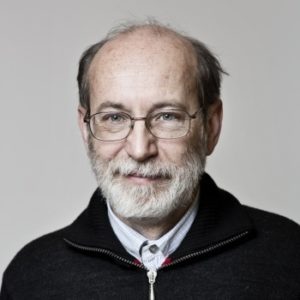
“Are we already utilizing everything Electron Beam Melting can deliver?”
Sports Tech Research Centre
Department of Quality Management and Mechanical Engineering (KMT)
Mid Sweden University, Östersund, Sweden
Andrey Koptyug is PhD in Chemical Physics (since 1988), joined Mid Sweden University, Östersund, Sweden, in 1999. He is Associate Professor of Mechanical Engineering since 2014, and is an active member of Additive Manufacturing group at Sports Tech Research Centre. This group is among the pioneers of using electron beam melting in research and development. At present, his main interests are within further developments of EBM technology, development of new processes and materials for EBM, new methods of component post-processing and in different applications of additive manufacturing.
Dr. Markus Ramsperger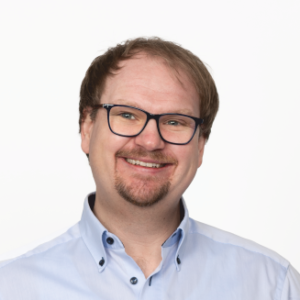
“Electron Beam Melting as an enabler for difficult to process materials”
Sr. Specialist Process & Material
GE Additive Arcam EBM Center of Excellence
Mölnlycke, Sweden
Markus Ramsperger is a material engineer with extensive experience in additive manufacturing of Ni-based Superalloys and Tool Steels. He holds a PhD degree in Material Science from the University of Erlangen-Nuremberg. He joined GE Additive in 2017 and is responsible for developing new materials and advanced process strategies for the Arcam EBM process. Before joining GE, Markus worked as a metallurgist in medical industry.
Dr. Karin Ratschbacher 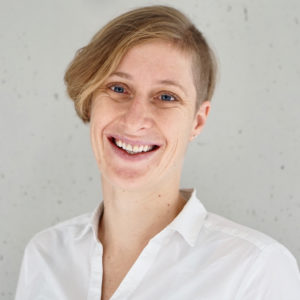
“Challenges and opportunities on the way to advanced powders for new applications of EB-PBF”
Product Manager Powders
GfE Metals and Materials GmbH
Nürnberg, Germany
Dr. Karin Ratschbacher obtained her PhD from the Montanuniversity Leoben in Austria for inventing and upscaling an industrial process to recycle Molybdenum, Niobium, Rhenium and Tungsten alloys, used in sputter targets. After her postdoctoral assignment at FEM-Research institute for precious metals, Karin Ratschbacher joined Modine Manufacturing Company as a vacuum brazing engineer for automotive coolers, working on an assignment in Shanghai. In 2019 she joined GfE Materials and Metals GmbH as Product Manager Powders and focuses on the atomization of specialized powders on an EIGA furnace.